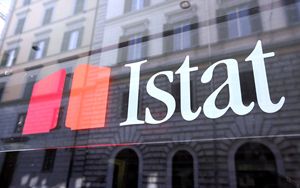(Finance) – In December exports to non-EU countries recorded a slight economic increase, mainly explained by higher sales of intermediate goods; while the monthly reduction in imports is mainly due to lower purchases of capital goods and energy. ISTAT notes this underlining that on an annual basis, the decline in both exports and, to a more pronounced extent, imports widens.
In 2023 as a whole, exports to non-EU countries grow by 2.5% (+20.1% in 2022); contributing are the greater sales of capital goods and non-durable consumer goods. Imports recorded a marked contraction (-20.9%; it was +54.5% in 2022), almost entirely explained by the reduction in purchases of energy and intermediate goods.
2023 ends with a trade surplus towards non-EU countries equal to 48.7 billion euros, compared to a deficit of 25.9 billion in 2022.
The Institute of Statistics estimates that in December for trade with non-EU27 countries there will be a slight cyclical increase in exports (+0.9%) and a decrease in imports (-2.5%).
The monthly increase in exports is mainly due to the greater sales of intermediate goods (+4.6%); sales of capital goods also increased (+1.3%) while sales of non-durable consumer goods decreased (-3.0%); energy exports are stationary. On the import side, with the exception of non-durable consumer goods (+4.1%), there are cyclical reductions for all groupings; the largest for capital goods (-7.9%).
In the fourth quarter 2023, compared to the previous one, exports grow by 2.3%; the increase concerns all groupings and is higher for durable consumer goods (+5.4%) and intermediate goods (+3.4%). In the same period, imports recorded modest growth (+0.2%), explained by greater purchases of non-durable consumer goods (+1.2%) and intermediate goods (+0.8%).
On an annual basis, in December, exports fell by 7.2% (it was -3.4% in November). Excluding durable consumer goods (+0.4%), the decline is widespread and is larger for energy (-13.1%), non-durable consumer goods (-10.6%) and intermediate goods (- 7.8%). Imports recorded a trend contraction of 26.8%, contributed by the reduction in purchases of all groups and, in particular, of energy (-43.5%) and intermediate goods (-20.6%).
In December, the trade balance with non-EU27 countries was positive and equal to +8,335 million (+4,007 million in the same month of 2022). The energy deficit (-4,911 million) is significantly reduced compared to the previous year (-9,240 million). The surplus in the trade of non-energy products is equal to +13,245 million (+13,247 million in December 2022).
In December, except around i OPEC countries (+26.5%), there are reductions on an annual basis in exports to all the main non-EU27 partner countries; the largest concern China, Japan (both -16.6%) and the United Kingdom (-10%).
Except give it United States (+12.8%), imports from all the main non-EU27 partner countries are decreasing on an annual basis. Purchases from Russia recorded the largest annual decline (-77.4%); There were also marked reductions in purchases from ASEAN countries (-41.9%) and OPEC countries (-39.1%).
